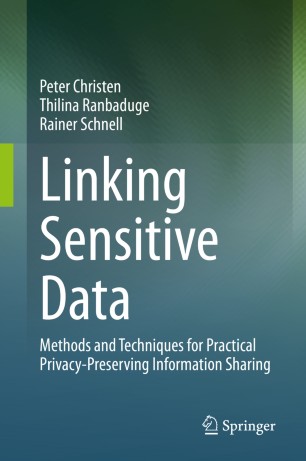

Most ebook files are in PDF format, so you can easily read them using various software such as Foxit Reader or directly on the Google Chrome browser.
Some ebook files are released by publishers in other formats such as .awz, .mobi, .epub, .fb2, etc. You may need to install specific software to read these formats on mobile/PC, such as Calibre.
Please read the tutorial at this link: https://ebookbell.com/faq
We offer FREE conversion to the popular formats you request; however, this may take some time. Therefore, right after payment, please email us, and we will try to provide the service as quickly as possible.
For some exceptional file formats or broken links (if any), please refrain from opening any disputes. Instead, email us first, and we will try to assist within a maximum of 6 hours.
EbookBell Team

4.4
72 reviewsThis book provides modern technical answers to the legal requirements of pseudonymisation as recommended by privacy legislation. It covers topics such as modern regulatory frameworks for sharing and linking sensitive information, concepts and algorithms for privacy-preserving record linkage and their computational aspects, practical considerations such as dealing with dirty and missing data, as well as privacy, risk, and performance assessment measures. Existing techniques for privacy-preserving record linkage are evaluated empirically and real-world application examples that scale to population sizes are described. The book also includes pointers to freely available software tools, benchmark data sets, and tools to generate synthetic data that can be used to test and evaluate linkage techniques.
This book consists of fourteen chapters grouped into four parts, and two appendices. The first part introduces the reader to the topic of linking sensitive data, the second part covers methods and techniques to link such data, the third part discusses aspects of practical importance, and the fourth part provides an outlook of future challenges and open research problems relevant to linking sensitive databases. The appendices provide pointers and describe freely available, open-source software systems that allow the linkage of sensitive data, and provide further details about the evaluations presented. A companion Web site at https://dmm.anu.edu.au/lsdbook2020 provides additional material and Python programs used in the book. This book is mainly written for applied scientists, researchers, and advanced practitioners in governments, industry, and universities who are concerned with developing, implementing, and deploying systems and tools to share sensitive information in administrative, commercial, or medical databases.